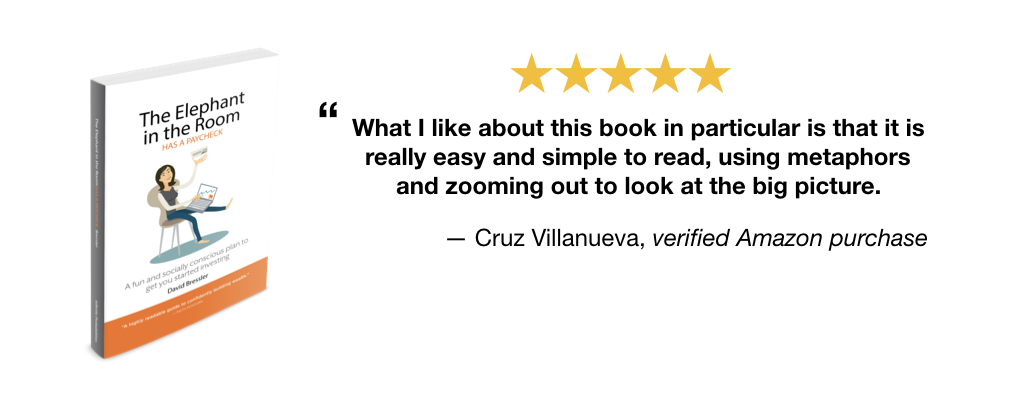Be honest. When you looked at your 401K options, how did you evaluate your mutual fund selections? Wasn’t past performance one of the main things you considered?
Why don’t you have the same standard for evaluating individual stocks/companies?
Maybe because the stock market seems more random? A mutual fund has a manager (or has managers) who manage the strategy ((Yeah, they have a strategy. Can you explain it? No? Then why are you investing in it?)). It seems more intuitive to look at that manager’s past performance and make a decision. When you evaluate a company, however, it’s not personalized. And, when you look at metrics — like profit or revenue, they don’t seem to correlate to stock performance. The cognitive dissonance — seeing good profit results but then watching the stock drop leads to mistrust and confusion.
Well, you’re looking at the wrong metric for making predictions based on past performance. Stock prices go up-and-down seemingly at random. There’s a lot more at play than just the company’s performance. What’s the market sentiment? Are traders gaming the system? Is there something you don’t know? Markets are fair, but not rational. It is a game, to some extent.
The stock market is a game. And if you don’t realize that, you’re sadly in the group being gamed.
— MG Siegler (@parislemon) April 17, 2013
Unlike the stock price, dividends are a metric where one can reasonably consider past performance. They’re less volatile, and they have more rationale behind their movement.
If you could find a stock that increased it’s dividend every single year for the past 25 years, or even the past 50 years, would you feel you could ‘rely’ on it being increased next year?
I know the standard ‘cover your ass’ disclosure in the financial world is “past performance is not an indication of future results”. That said, if a company has raised their dividend each year for 25 years I believe that it’s a good indication it’ll raise it again next year, even a token amount just to keep the streak going. And, in cases where the dividend streak fails, there’s a clear reasoning behind the failure which helps us understand how the game works and make better decisions in the future. For example, when GE broke it’s streak of about 30 years of consecutive increases in 2009 during the latest recession. Makes sense that they had to cut the dividend. Of course, now they can “only” claim that “GE has paid a dividend each quarter for over one hundred years.” (scroll down to the Dividend History section of the page if you follow that link.)
How does one find a company with such a dividend record? Simple. The dividend aristocrats.


Let me know what you think